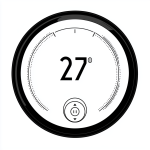The Federal Circuit recently heard oral arguments in the much-anticipated en banc review of EcoFactor, Inc. v. Google LLC, a case focusing on how courts evaluate expert testimony on patent damages. And, in particular, when a court should step-in to bar expert testimony that does not have sufficient factual basis for its conclusions. The arguments focused on whether EcoFactor's damages expert improperly derived royalty rates from license agreements that contained performative non-binding "whereas" clauses stating EcoFactor's belief about rates, while the operative provisions specified lump-sum payments. It seems clear to me that these provisions were added as elements of the patentee's smaller license agreements in order to later be used in larger cases, such as the one against Google.
Judge Alan Albright (W.D.Tex.) admitted testimony from EcoFactor's damages expert, David Kennedy, who derived a per-unit royalty rate from three prior EcoFactor settlement agreements to calculate a $20 million damages award against Google for infringing EcoFactor's smart thermostat patent, U.S. Patent 8,738,327.
To continue reading, become a Patently-O member. Already a member? Simply log in to access the full post.
